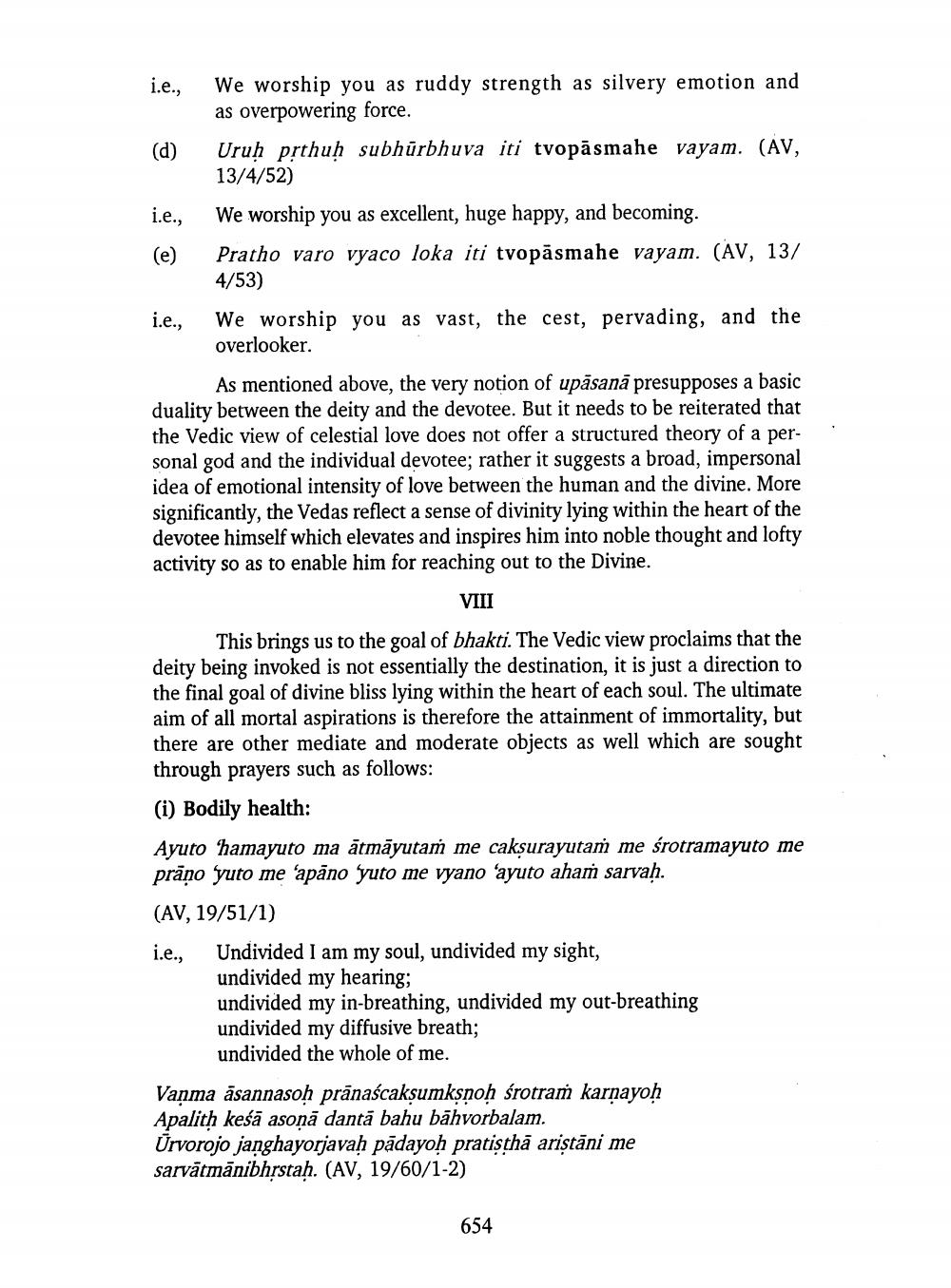________________
i.e.,
(d)
i.e.,
(e)
i.e.,
We worship you as ruddy strength as silvery emotion and as overpowering force.
Uruḥ prthuḥ subhūrbhuva iti tvopāsmahe vayam. (AV, 13/4/52)
We worship you as excellent, huge happy, and becoming.
Pratho varo vyaco loka iti tvopāsmahe vayam. (AV, 13/ 4/53)
We worship you as vast, the cest, pervading, and the
overlooker.
As mentioned above, the very notion of upāsanā presupposes a basic duality between the deity and the devotee. But it needs to be reiterated that the Vedic view of celestial love does not offer a structured theory of a personal god and the individual devotee; rather it suggests a broad, impersonal idea of emotional intensity of love between the human and the divine. More significantly, the Vedas reflect a sense of divinity lying within the heart of the devotee himself which elevates and inspires him into noble thought and lofty activity so as to enable him for reaching out to the Divine.
VIII
This brings us to the goal of bhakti. The Vedic view proclaims that the deity being invoked is not essentially the destination, it is just a direction to the final goal of divine bliss lying within the heart of each soul. The ultimate aim of all mortal aspirations is therefore the attainment of immortality, but there are other mediate and moderate objects as well which are sought through prayers such as follows:
(i) Bodily health:
Ayuto hamayuto ma ātmāyutam me cakṣurayutam me śrotramayuto me prano yuto me 'apāno yuto me vyano 'ayuto aham sarvaḥ.
(AV, 19/51/1)
i.e.,
Undivided I am my soul, undivided my sight, undivided my hearing;
undivided my in-breathing, undivided my out-breathing undivided my diffusive breath;
undivided the whole of me.
Vanma āsannasoḥ pranaścakṣumksnoḥ śrotram karnayoh Apalith keśā asoṇā dantā bahu bähvorbalam.
Urvorojo janghayorjavah padayoh pratisthā aristani me sarvātmānibhṛstaḥ. (AV, 19/60/1-2)
654




